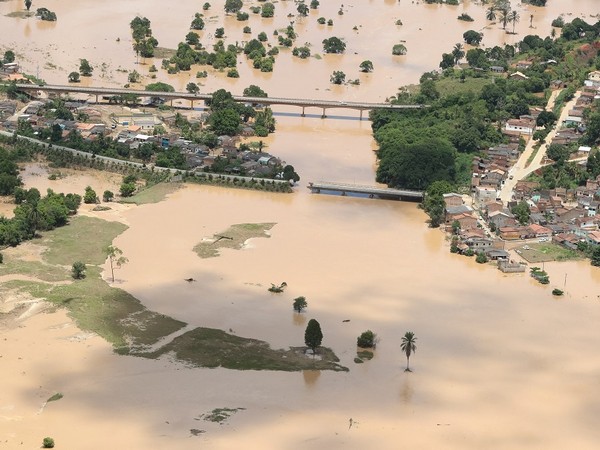UNHCR ramping up emergency response in flood-ravaged Rio Grande do Sul, Brazil
In the upcoming days, UNHCR plans to assist in the issuance of documentation for those whose papers were lost or damaged in the floods.

In response to the catastrophic floods that have swept through Rio Grande do Sul, Brazil, claiming at least 107 lives and affecting over 1.7 million people, the UN Refugee Agency (UNHCR) is ramping up its emergency response. The flooding, which also left 134 people missing, has hit the refugee community hard, impacting approximately 41,000 individuals, including many Venezuelans and Haitians residing in the area.
The floods have made access to some regions possible only by boat, complicating relief efforts. In collaboration with Brazilian federal, state, and municipal authorities, and various partner organizations, UNHCR is actively distributing essential relief items like blankets and mattresses and assessing ongoing needs. The agency is also focusing on maintaining communication with the affected communities, providing information in multiple languages to ensure that refugees and migrants are well-informed about protection recommendations and the risks in their areas.
In the upcoming days, UNHCR plans to assist in the issuance of documentation for those whose papers were lost or damaged in the floods. This effort is crucial to ensure continued access to social benefits and public services for refugees and asylum-seekers. Furthermore, the agency aims to enhance the capacity of local civil society partners to offer psychological support and cater to the most vulnerable cases, extending its reach to host communities as well.
Additional supplies are en route to the impacted areas, including emergency shelters, kitchen sets, solar lamps, and hygiene kits, sourced from UNHCR's regional stocks and a northern Brazil stockpile.
Since April 2018, Rio Grande do Sul has become a new home for over 21,000 Venezuelans relocated from Roraima state, near the Venezuelan border. This adds a layer of complexity to the humanitarian response required in the region.
The severe weather in Brazil has been part of a broader trend of increasing frequency and intensity of extreme weather events, to which UNHCR has been responding not just in Rio Grande do Sul but also in other states like Bahia and Acre.
Meteorologists are forecasting further severe weather, including more intense rain and strong winds across Rio Grande do Sul through the weekend, which may exacerbate the current crisis.
To address the urgent needs, UNHCR estimates that $3.21 million is required. This funding will support direct financial assistance and the provision of essential relief items. Despite this, the agency notes that funding to combat the impacts of climate change on displaced populations and their host communities remains insufficient. In April 2024, UNHCR launched its first-ever Climate Resilience Fund to bolster the resilience of refugees and displaced communities to the escalating challenges posed by climate-change-related weather events.
- READ MORE ON:
- UNHCR
- Rio Grande do Sul










